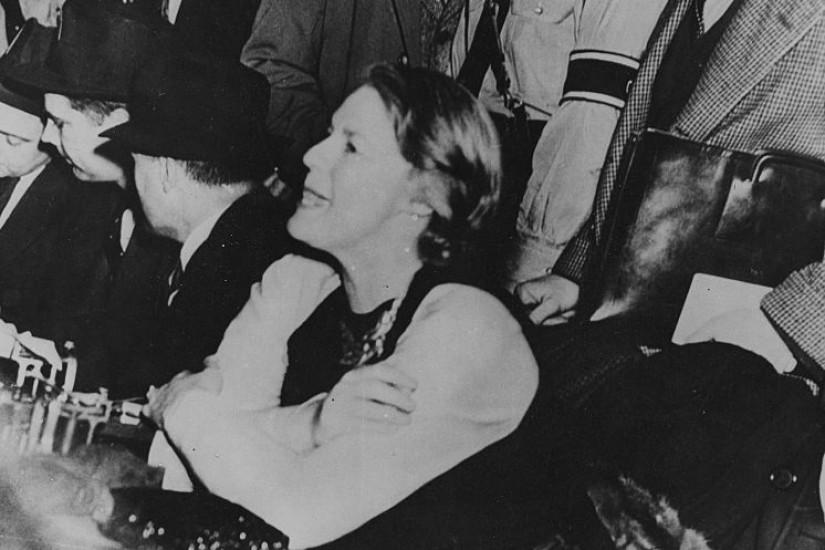To be fair, “Who Goes Nazi?” is, in many ways, a great essay written by an admirable woman. To say that Dorothy Thompson was ahead of her time would be misleading. She was, of course, but she was also very much of her time—behind it, outflanking it, and surrounding it from all directions at once as a kind of grand journalistic force of nature. In 1939, Time magazine called her one of the most influential women in America, second only to Eleanor Roosevelt. And she had the distinct honor of being the first American journalist to be kicked out of Nazi Germany in 1934. All throughout the Thirties, as one of the few women radio broadcasters in the world, Thompson doggedly tracked the rise of the Nazi party and the disintegration of Germany into a totalitarian fascist state, often in the face of widespread disbelief about the seriousness of the threat that the National Socialists posed to world peace. So if anyone was qualified to write a playful, almost subversively glib article about spotting fascists in the wild, it was Thompson.
The problem with “Who Goes Nazi?” isn’t Thompson’s anti-Nazi bona fides, but the almost mystical sense by which she claims to be able to sense fascism. She begins the essay with an authoritative but conversational conviviality that compels with a sort of world-weary wisdom: “It is an interesting and somewhat macabre parlor game to play at a large gathering of one’s acquaintances: to speculate who in a showdown would go Nazi. By now, I think I know. I have gone through the experience many times—in Germany, in Austria, and in France. I have come to know the types: the born Nazis, the Nazis whom democracy itself has created, the certain-to-be fellow-travelers. And I also know those who never, under any conceivable circumstances, would become Nazis.” She’s seen it all and so knows the types, which she takes us through one by one, moving through the fictitious cocktail party with the deft hand of a writer of fiction.
